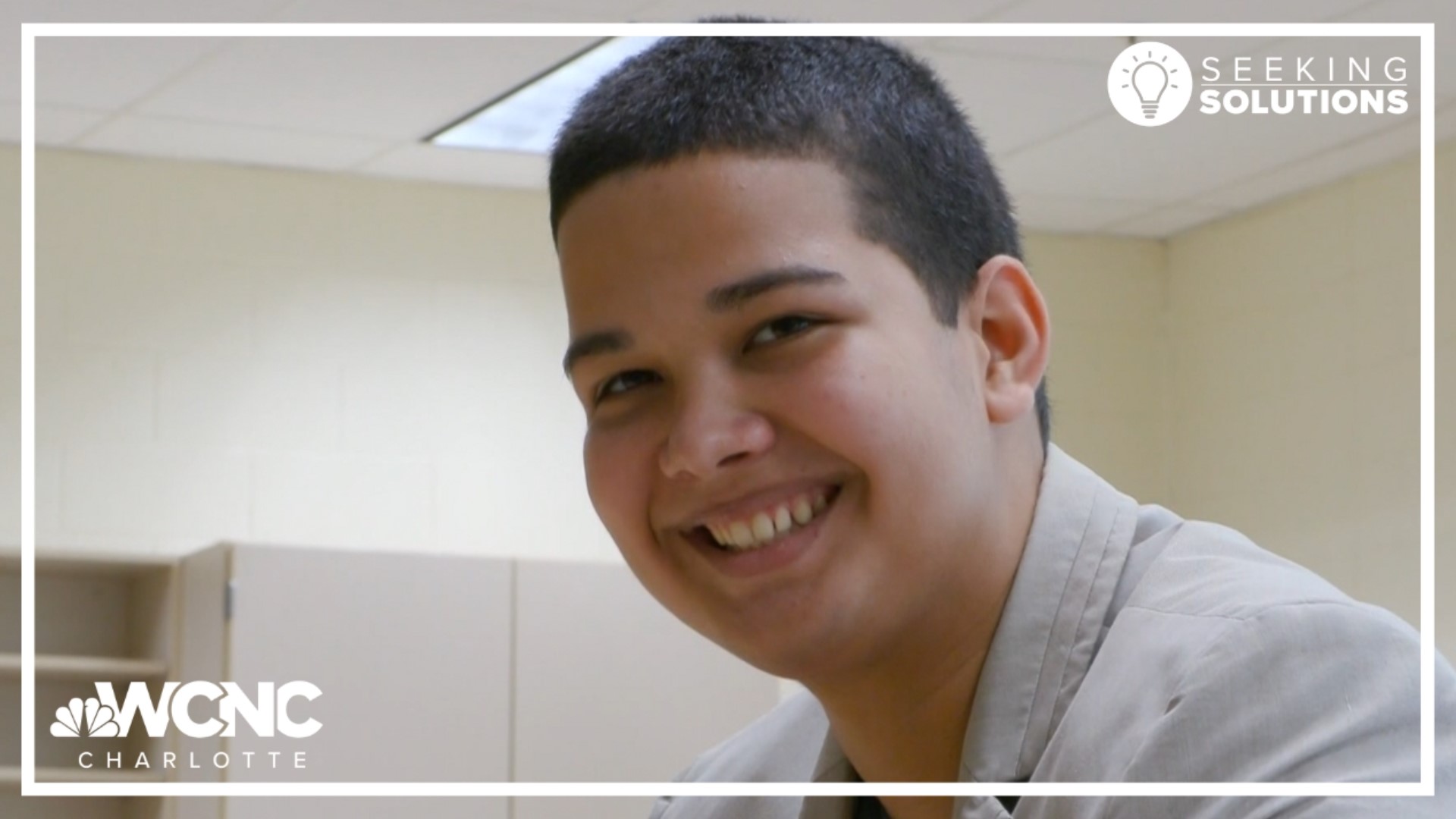MECKLENBURG COUNTY, N.C. — Students learning English as a second or third language face unique challenges in the classroom.
Nationwide and at Charlotte-Mecklenburg Schools, these students are faced with lower graduation rates, and the transition into school is not always an easy one.
"If you're coming to the United States, as a newcomer, it's very overwhelming, right?" Alejandra Garcia, the principal at P.A.C.E. Academy at E.E. Waddell, said. "So the whole educational system is overwhelming. The whole country is overwhelming."
A new CMS school the P.A.C.E Academy at E.E. Waddell is seeking solutions to improve the lives of these students. P.A.C.E. stands for "Personalized Academic Command of English," and it is a new school that helps students who are new to the United States and need improvement in English language proficiency.
"It's personalized because we take all of the newcomers from all over the world and we make small group instruction," Garcia said.
No more than 200 students at a time are enrolled at the school. Class ratios are 15 students to two instructors. At other traditional high schools, partly due to staffing issues, some high school classes can have upwards of 40 students per class.
"We're sitting at 15 per class with an MLL( Multi-Language Learner) teacher supporting the regular content teacher," Garcia said.
From the front office to the classrooms, the P.A.C.E. Academy is a different experience for students learning English.
"I have kids from Congo, kids from China, kids from Syria, and kids from South American and Central American countries," Garcia said.
Many of the current P.A.C.E. students are Spanish-speaking. A new student at the school is Christopher Michel-Cardenás.
Michel-Cardenás is everything you want in a student -- he's outgoing, smart, and willing to learn.
Before he came to the P.A.C.E Academy, he was hit with misconceptions and stigmas in school.
"When I come for the United States everybody pulling me, pull me down one grade. I need up you know what I'm saying?" Michel-Cardenás said.
Due to him learning English, past schools assumed he should be in a lower grade.
"They didn’t look at him as a person," Garcia said. "They just looked at the stigma. It's a newcomer."
The stigma Garcia is talking about is the one where people assume the second language students are learning is getting in the way of their academics.
"As they're learning the second language, they're not going to be able to produce or perform to the high levels that they're expected? And that's not true," Garcia said.
P.A.C.E. doesn’t look at learning English as a second or third language as a stigma.
"It's just believing that they can and they will," Garcia said. "So there are no options. There is no mental deficit, there is no fixed mindset, there is no believing that, 'Oh my God, they're bilingual or trilingual.' That is actually an asset. Right?"
Garcia said the school mission is simple.
"We have tons, hundreds of stories like Chris, and it is telling Chris, we will change the trajectory," Garica said.
At CMS, 65% of English language learners are graduating in four years or fewer. That's better than the national average of 57%, but it's still about 18% behind the average for all students.
"Extra support, not lower standards," Garcia said. "This is what you will do. You will graduate, you will go into college."
Class instruction is taught in English, but unlike traditional high schools, there is immediate and more help for students learning English.
"We're not taking away the content from you," Garcia said. "You're still learning in Math One, your statistics, and your probability."
Michel-Cardenás, like other newcomers to the United States, has a story to tell.
His family traveled from Cuba to Mexico, and then eventually made their way to Charlotte, after making stops in Florida.
"I have two sisters," Michel-Cardenás said. "One here and one in Cuba, and one brother."
Family stories and their participation are integral to staff staff at P.A.C.E.
They want to make sure someone is there to listen to their students' stories.
"Someone is listening to me, someone is understanding what I'm going through because they come with a lot of baggage and sometimes, you know, in their past education hasn't always been on the radar," Saundra Perry, a P.A.C.E Academy instructional facilitator, said.
P.A.C.E is a place where students like Michel-Cardenás finally have a place to shine.
"They're human, they're just humans that have other languages," Garcia said. "So it's how do we get past that stigma so we can be able to succeed?"
Contact Shamarria Morrison at smorrison@wcnc.com and follow her on Facebook, X and Instagram.
WCNC Charlotte is committed to reporting on the issues facing the communities we serve. We tell the stories of people working to solve persistent social problems. We examine how problems can be solved or addressed to improve the quality of life and make a positive difference. WCNC Charlotte is seeking solutions for you. Send your tips or questions to newstips@wcnc.com.

